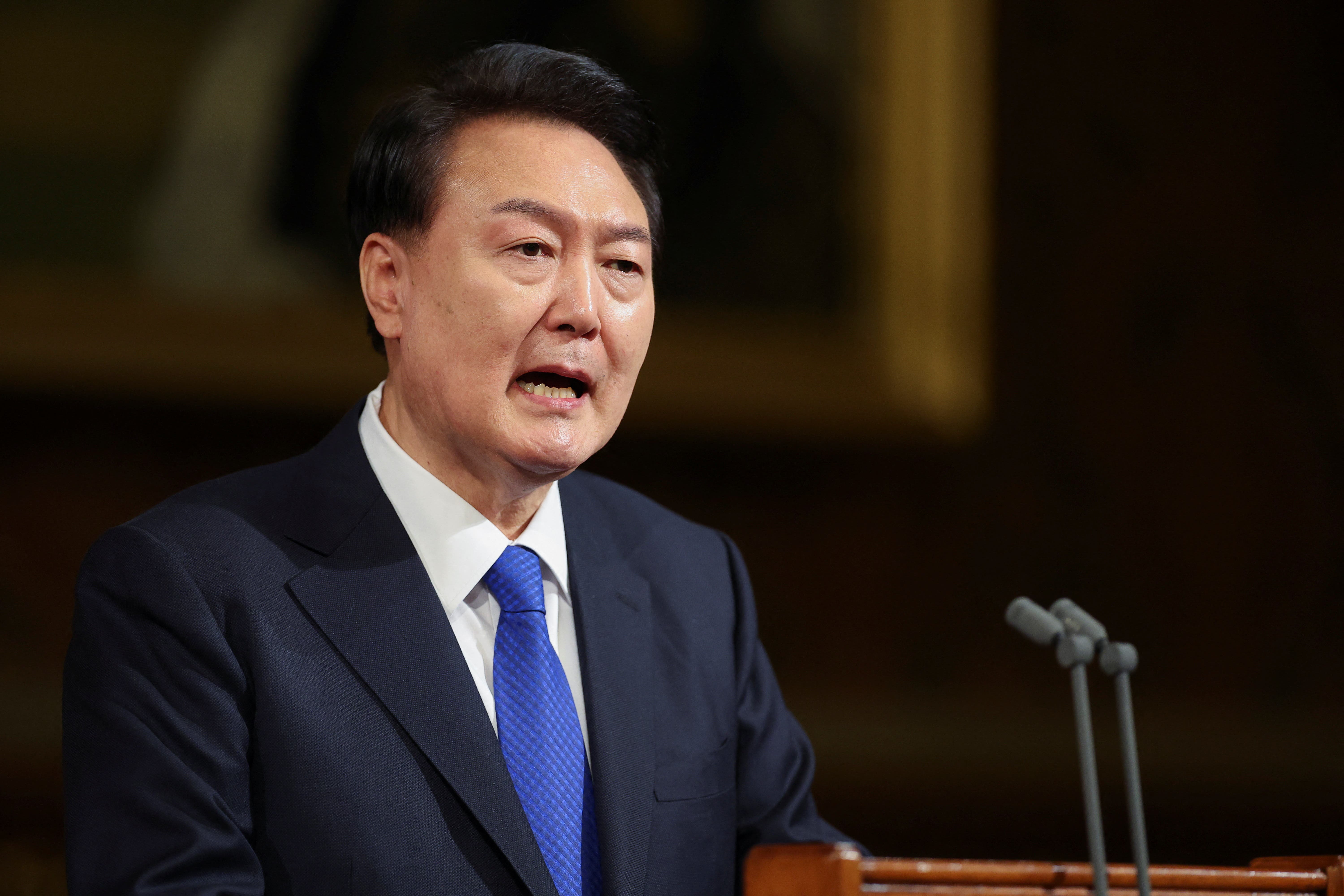
>South Korea’s President Lifts Martial Law Decree After Lawmakers Reject Military Rule
In a significant turn of events, South Korean President Yoon Suk-yeol has lifted the martial law decree that had been in place for over half a century. The decision comes after lawmakers rejected a proposal to extend military rule, paving the way for a transition to civilian control.
>Background: A History of Martial Law
Martial law was first imposed in South Korea in 1948, shortly after the country’s independence. It was initially intended as a temporary measure to quell political unrest during the Korean War. However, it remained in force for decades, severely restricting civil liberties and empowering the military.
>Lawmakers’ Rejection of Military Rule
In recent years, there has been growing pressure to lift martial law. Critics argued that it was an anachronism that had no place in a modern, democratic society. In December 2022, lawmakers in the National Assembly voted overwhelmingly against a proposal to extend the martial law decree.
>President Yoon’s Decision
President Yoon, who took office in May 2022, had promised during his election campaign to lift martial law if elected. On January 10, 2023, he followed through on his pledge and announced that the decree would be lifted.
>Significance and Implications
The lifting of martial law is a momentous event that symbolizes South Korea’s transition to a fully civilian-run government. It removes the last vestiges of military influence from the country’s political system and strengthens the rule of law.
Experts believe that the move will enhance South Korea’s international standing and bolster its democratic credentials. It could also pave the way for greater economic and social progress by removing the barriers to civil liberties and political expression.
>Reaction and Challenges
The decision has been met with mixed reactions. Some conservative groups have criticized the move, arguing that it weakens the country’s security in the face of threats from North Korea.
However, most South Koreans welcome the lifting of martial law. They see it as a step towards a more transparent and accountable government, where the rights of all citizens are fully respected.
>Conclusion
South Korea’s decision to lift martial law is a historic moment that marks a new era for the country. It is a testament to the country’s progress towards a mature and stable democracy, where the rule of law and the rights of individuals prevail.
As South Korea looks to the future, the lifting of martial law is a reminder of the importance of civilian control and the ongoing struggle for freedom and democracy. It serves as a beacon of hope for other countries that aspire to break free from authoritarianism and embrace a brighter future.
